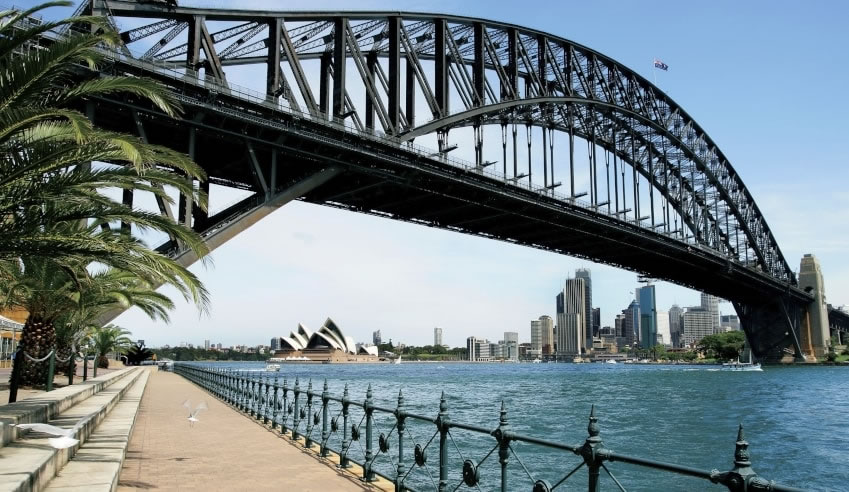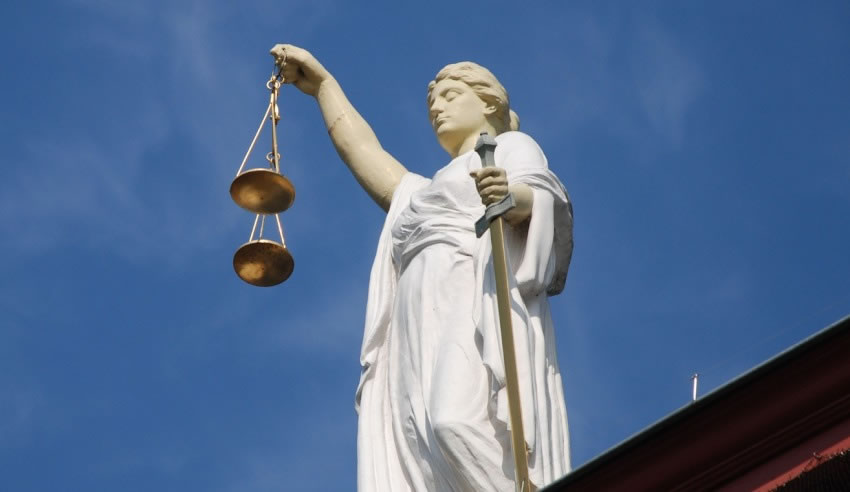What are your rights as Australia goes into stage 3 lockdown and authorities begin enforcing stricter social-distancing?
Rights groups have called for Australians to understand their rights as social-distancing restrictions ramp up and new penalties are introduced to enforce them.
The message from authorities is don’t leave your home unless absolutely necessary — that means going to work or school if you can’t do it remotely, buying essentials, seeking medical care or exercise.
Indoor and outdoor gatherings have been restricted to two people as of Tuesday as part of further efforts to stop the spread of coronavirus.
How will the new rules be enforced?
Breaking the rules will now carry stiff financial penalties across state jurisdictions as police warn they’re not afraid to enforce the measures.
In
NSW
alone, anyone who leaves their house without a “reasonable excuse” could face six months in prison or an on-the-spot fine as high as $11,000.
Other states have mandated the following penalties:
ACT:
Warning, followed by fines of up to $8000;
Victoria:
Fines of $1600 or more;
South Australia:
Police will not be enforcing national directive;
Queensland:
Fines of $1330 for individuals;
Western Australia:
Fines of $1000 for individuals;
Northern Territory:
Police will not be enforcing national directive; and
Tasmania:
Capacity to issue fines.
NSW Council of Civil Liberties spokesman Stephen Blanks told SBS News the measures are set to have a “most serious impact” on people’s freedoms and fundamentally change the public’s relationship with police.
“The way in which they’re enforced is going to have a huge impact on whether the community continues to support these laws,” he said.
“The issuing of the fines must really be a last resort where compliance cannot be achieved any other way.”
What are your rights if you get stopped by police?
Rights groups have told SBS News police are well within their rights to question people about their reasons for leaving home.
Mr Blanks said if stopped by authorities people can expect to be asked for a “reasonable excuse” for why they’re not at their primary residence.
He said police will be called on to exercise “mature judgement” in how they enforce their powers, bearing in mind the hefty penalties available.
“Clearly, if people engage with police in a way that tries to avoid questions police may exercise powers,” he said.
“Police have extraordinary powers which they can exercise. They could exercise them against people who are unco-operative.”
Mr Blanks said if people do behave in this manner they’d be more likely to be at risk of being fined under the new provisions.
In the ACT, chief minister Andrew Barr has flagged a gradual enforcement process that would involve warnings before on-the-spot fines are applied.
But in NSW, Police Commissioner Mick Fuller has confirmed 13 infringements have already been imposed on people flouting new restrictions.
“I hope we don’t have to write any more but I fear there’ll be individuals who won’t get the message, so we’ll be out there,” he said.
What’s a ‘reasonable excuse’ for leaving home?
Federal and state leaders have summed up the acceptable reasons to leave home as going to work or school, buying essentials, medical care and exercise.
But under the NSW Public Health Act there are a total of 16 such “excuses” people can use to justify leaving home.
This includes getting food or other goods or services (including for pets), taking children to childcare, fulfilling carer responsibilities, attending a wedding or a funeral, moving house, providing emergency help and donating blood.
It also includes undertaking legal obligations, accessing public services such as Centrelink or domestic-violence support and allows children who don’t live in the same household to visit their parents or siblings.
Finally, it allows for a religious minister to go to the person’s place of worship or provide pastoral care, avoiding injury or illness and for emergencies or compassionate reasons.
The two-person rule doesn’t apply to people in your household, which means immediate families can still meet together.
How long are the restrictions in place?
Rights groups told SBS News the unprecedented restrictions were acceptable given the public-health threat.
But they warned the increasing powers must be time-limited, enforced fairly and not discriminate against vulnerable members of society.
While other countries that have imposed similar lockdown measures such as the United States and the United Kingdom have set a date for when they intend to lift them, Australia has not set a national deadline.
Civil Liberties Australia vice-president Rajan Venkataraman said it’s vital the measures aren’t in place "any longer than absolutely necessary".
Prime Minister Scott Morrison has said the impact of the pandemic is expected to last about six months but how long the measures are in place will largely depend on how successful they are at slowing the spread.
As questions about police tactics to enforce the strict rules continued, NSW police said on Thursday they would be in place for 90 days.
Mr Venkataraman said increased restrictions can lead to heightened public anxiety despite being designed for public safety.
“There’s always that risk and again with extraordinary new powers there’s absolutely the potential that people may feel intimidated by an increased police presence or questioning,” he said.
Victorian Liberties spokeswoman Gemma Cafarella told SBS News it was important hefty penalties didn’t unfairly have an impact on vulnerable groups.
“What we do know is fines disproportionately impact people who are poor,” she said.
“It’s really important to make sure these rules don’t disproportionately affect people who are vulnerable.”
Prime Minister says Australia is not in ‘lockdown’
NSW, the ACT and Victoria are now the only jurisdictions that don’t require interstate travellers to undergo a 14-day quarantine period on arrival.
Western Australia has not only closed its state borders, it’s also introduced intrastate travel restrictions from midnight on Tuesday meaning people won’t be able to travel outside their designated region.
Other measures are in place to prevent travellers going into remote Indigenous communities in the Northern Territory and South Australia.
The coronavirus pandemic has triggered lockdown restrictions across the world, including the United Kingdom, New Zealand, India, Italy and Peru.
But Mr Morrison has cautioned against using the term “lockdown”, saying he does not want to create “unnecessary anxiety”.
From
SBS News
(used with permission)
More:
Federal Department of Health
Main picture: Anna Shvets/Pexels










